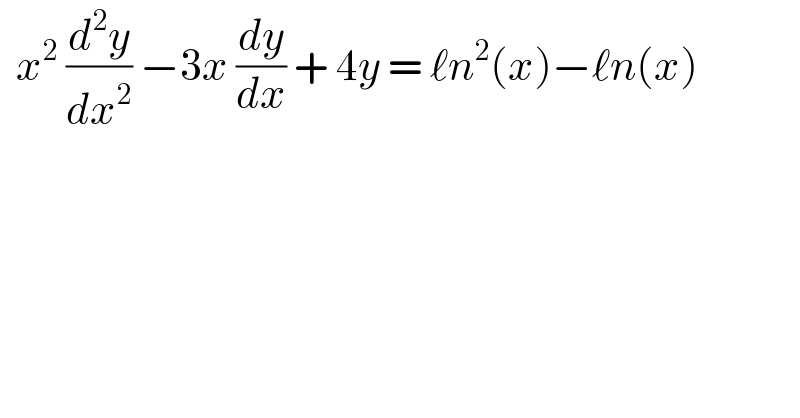
Question and Answers Forum
Previous in Differential Equation Next in Differential Equation
Question Number 123207 by benjo_mathlover last updated on 24/Nov/20

Commented by mnjuly1970 last updated on 24/Nov/20

Commented by mohammad17 last updated on 24/Nov/20
 Yp=(1/4){u^2 −u+2u−1+(3/2)} Yp=(1/4)u^2 +(1/4)u+(1/8) put:u=lnx ∴Yh=(C_1 +C_2 lnx)x^2 ∴Yp=(1/4){ln^2 x+lnx+(1/2)} Y=Yh+Yp=(C_1 +C_2 lnx)x^2 +(1/4){ln^2 x+lnx+(1/2)} by:⟨m.o⟩](Q123236.png)
Answered by Lordose last updated on 24/Nov/20

